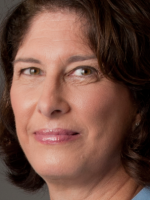RENEE MONTAGNE, host:
This is MORNING EDITION from NPR News. Good morning. I'm Renee Montagne.
Hillary Clinton is soldiering on, campaigning today in South Dakota and West Virginia and tomorrow in Oregon and Kentucky. Last night she held a fundraiser in Washington. The New York senator is brushing aside calls to leave the race, even as her own supporters acknowledge the odds of her getting the nomination have become almost insurmountable.
NPR national political correspondent Mara Liasson reports.
MARA LIASSON: As Barack Obama's lead in delegates, popular votes and superdelegates continue to grow, Senator Clinton was defiant. In Shepherdstown, West Virginia yesterday, she said she had no intention of dropping out.
Senator HILLARY CLINTON (Democrat, New York): I'm staying in this race until there's a nominee. And I obviously am going to work as hard as I can to become that nominee. I believe that I'm the stronger candidate against Senator McCain and I believe I would be the best president among the three of us running.
LIASSON: Yesterday Clinton continued to press the argument she has been making to the superdelegates - that Obama's difficulty in winning the votes of Hispanics and low-income whites makes him a weaker general election candidate. But what about Clinton's difficulty in getting more than single-digit support from African-Americans? She was asked whether that made her a weaker general election candidate.
Sen. CLINTON: Come the fall election, I think that the African-American voters, which are a very important part of the base of the Democratic Party, will support the nominee. But what we have not been able to count on in the last elections are the voters I'm getting. Women, particularly lower income women, didn't vote for John Kerry. Hispanics didn't come out for Senator Kerry in the numbers that people had hoped for. Working people are really a part of the base that we lost that we're trying to win back.
So I think the base I put together in these primaries is a stronger place to start from.
LIASSON: To some Democrats, that's the same thing as saying, my voters won't vote for him but his voters will vote for me. And many of these Democrats view her continued presence in the race as destructive to the party's chances in the fall. But her senior adviser, Howard Wolfson, dismissed the idea that Clinton would employ a kind of scorched Earth approach as she continues to fight for the nomination.
Mr. HOWARD WOLFSON (Senior Clinton Adviser): Senator Clinton has worked for this party and its causes her entire adult life. She is committed to a set of policies that would make this country better. It's what animates her, it's what gets her up every day, it's what has gotten her up everyday for her whole entire adult life.
So we believe that this process has been good for the party, and I just - frankly, I reject that out-of-hand and completely.
LIASSON: One party elder, former Presidential candidate George McGovern, a former Clinton supporter, switched to Obama yesterday and urged her to quit the race. Very few others have joined him, at least publicly. Tennessee Governor Phil Bredesen, who has yet to endorse either candidate, says how Clinton continues her campaign is more important than whether she stays in or gets out.
Governor PHIL BREDESEN (Democrat, Tennessee): Think of it like a marriage. You know, it works as long as you don't say the things that you can't take back. I don't think either candidate has gone over the line at this point but I certainly think they've been coming up to it. So I think if people conduct themselves in a way in which you're not making divisions you can't bring back together again, and if we get a nominee in June I think we'll be fine and we'll go on and to run a great campaign and win this election.
LIASSON: Steve Jarding, a Democratic strategist unconnected to either campaign, says Clinton has good reasons to stay in.
Mr. STEVE JARDING (Democratic Strategist): I think she probably at this point owes it to her campaign, to her supporters, to the rest of the states, frankly, including Michigan and Florida, to see how that washes out, before she certainly makes any decision as to whether she should get out.
LIASSON: Yesterday in West Virginia, Clinton said she will fight to get the disputed delegations from Michigan and Florida seated full strength at the Democratic convention. But even if those delegations were apportioned the way Senator Clinton hopes, she probably still won't have enough delegates to become the nominee.
Mara Liasson, NPR News, Washington. Transcript provided by NPR, Copyright NPR.






